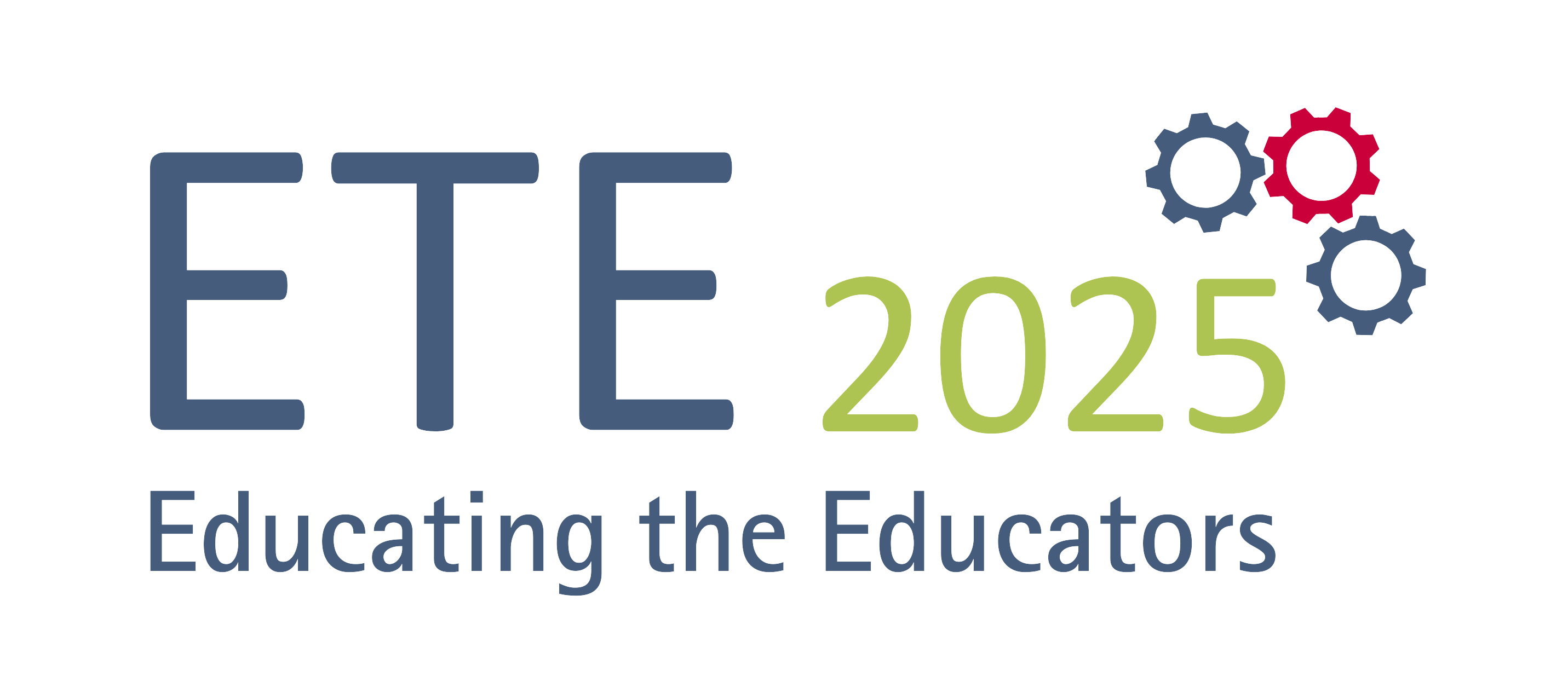Conference series
Educating the Educators (ETE) is an international conference series on professional development in STEM (science, technology, engineering, and mathematics) education that brings together teacher educators, policymakers, teachers, and various other stakeholders related to STEM education.
Background and key topic of the series
Research and experience reveal that innovative teaching approaches promoted by STEM education researchers differ significantly from the day-to-day practices of teachers in many countries. This clearly implies that research on implementing teaching approaches effectively is essential to bridge this gap. These investigations of scaling up should be broad in scope and attend not only to the practices of teachers and researchers, but also to the practices of other important stakeholders including school principals, teacher educators, educational administrators, and policymakers.
Implementing innovations in one classroom can be a challenging endeavor, and it is even more demanding across a whole school. Logically, it becomes exponentially more challenging, when the effort of scaling up an innovation aims to reach many schools, a district, or even a state or nation. Therefore, scaling up has become a concern for STEM education research during the last ten years.
In particular, the ‘Educating the Educators’ conference series serves as a lever and platform for international exchange about concepts and experiences concerning such questions as:
- What are the features of successful concepts and professional development?
- What are the needs and experiences of the different target groups?
- Which pitfalls must be avoided?
ETE History
ETE I (2014) was jointly hosted by MaSciL(maths and Science for life!, coordinated by ICSE), ICSE (International Centre for STEM Education), and the DZLM (the German Centre for Mathematics Education). This international conference connected researchers and practitioners engaged in the field of maths and science education to discuss concepts of scaling up teacher professional development. These participant groups are key to the aim of disseminating innovative teaching approaches, such as inquiry-based learning. A special feature of this conference was that it brought together researchers and practitioners (including the target group of teacher educators themselves) and initiated an exchange between teacher education centers in different countries. Key to scaling up concepts – and core to the conference – was the education, professional development, and support of multipliers.
The conference approached the subject from the perspectives of: 1. Individual countries and their particularities; 2. Different target groups and their needs (policymakers, educators of teacher educators), and 3. The end-users (teacher educators, teachers, and their everyday classroom practice).
ETE II (2016) took place in the course of the final conference of the project MaSciL (‘Maths and science for life!’, coordinated by ICSE) and was jointly hosted by MaSciL, ICSE (International Centre for STEM Education) and the DZLM (the German Centre for Mathematics Education). This second conference served as a researcher-practitioner platform for exchange focusing on research, policy, and practice relevance and implications. Next to high-level keynote speakers, presentations by researchers and practitioners, a Materials Market, and an Early Career Researcher’s Day the conference also featured a company visit to reflect innovation in STEM education in the industrial context, a Policy Seminar and hosted a meeting of the Network of European STEM Professional Development Centres.
ETE III (2019) took place in the course of the project MaSDiV (‘Supporting Mathematics and Science teachers in Addressing Diversity and Promoting Fundamental Values’, coordinated by ICSE), and was hosted by ICSE and the ICSE consortium. In this third conference the general conference topic was treated in particular in relation to innovative teaching approaches like inquiry-based learning, intercultural learning, and connections between STEM learning and fundamental values of our democratic societies. To approach the topic from different angles and to make different stakeholders in STEM education cooperate, we placed particular emphasis on bringing together teacher educators and researchers, course leaders and relevant networks, educators of course leaders and teacher educators as well as policymakers and teacher professional development centers and chose a variety of conference formats to support a vibrant exchange.
ETE IV (2023) was hosted by Utrecht University, ICSE, and Naturalis in collaboration with the MOST project, the ICSE consortium, and ECENT-ELWIER. ETE IV focused on implementing and scaling up innovative teaching approaches in STEM education in particular on open schooling initiatives with respect to environmental issues (such as waste reduction, energy reduction/transition, increasing electricity needs for clouds and bitcoins, etc.). The aim was to discuss different approaches with a rich variety of participants on ways of working for teachers and PD course leaders, the roles of teaching materials, and on structures needed for innovations in STEM education. ETE IV featured both traditional and innovative formats to benefit from gathering a circle of participants from research, practice, and policy. Vivid exchange and collaborative work were ensured through spaces for co-creation and for sharing ideas and results. Prominent keynote speakers provided rich introductions with two plenary lectures and a panel discussion on the main theme of the conference.
